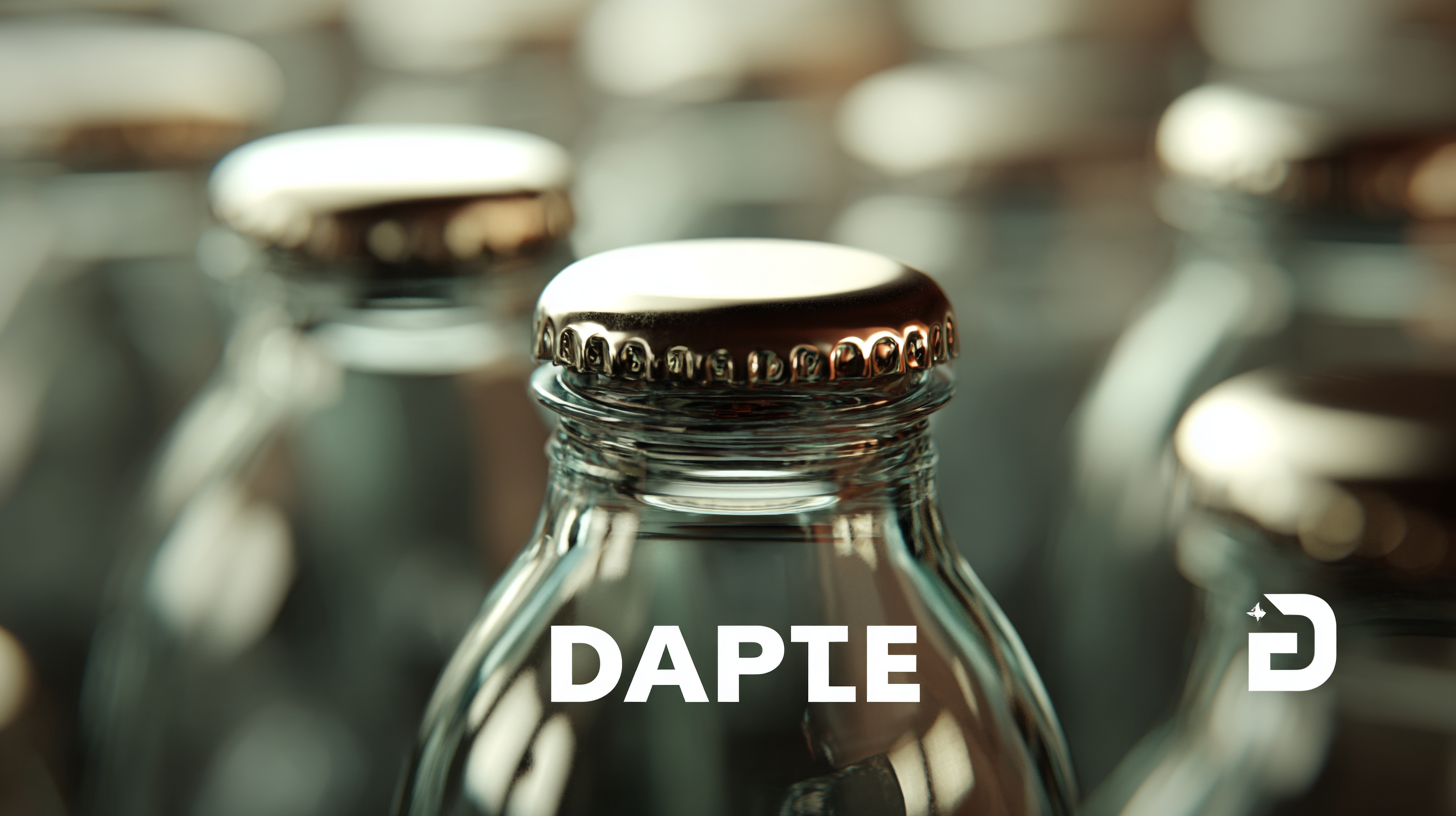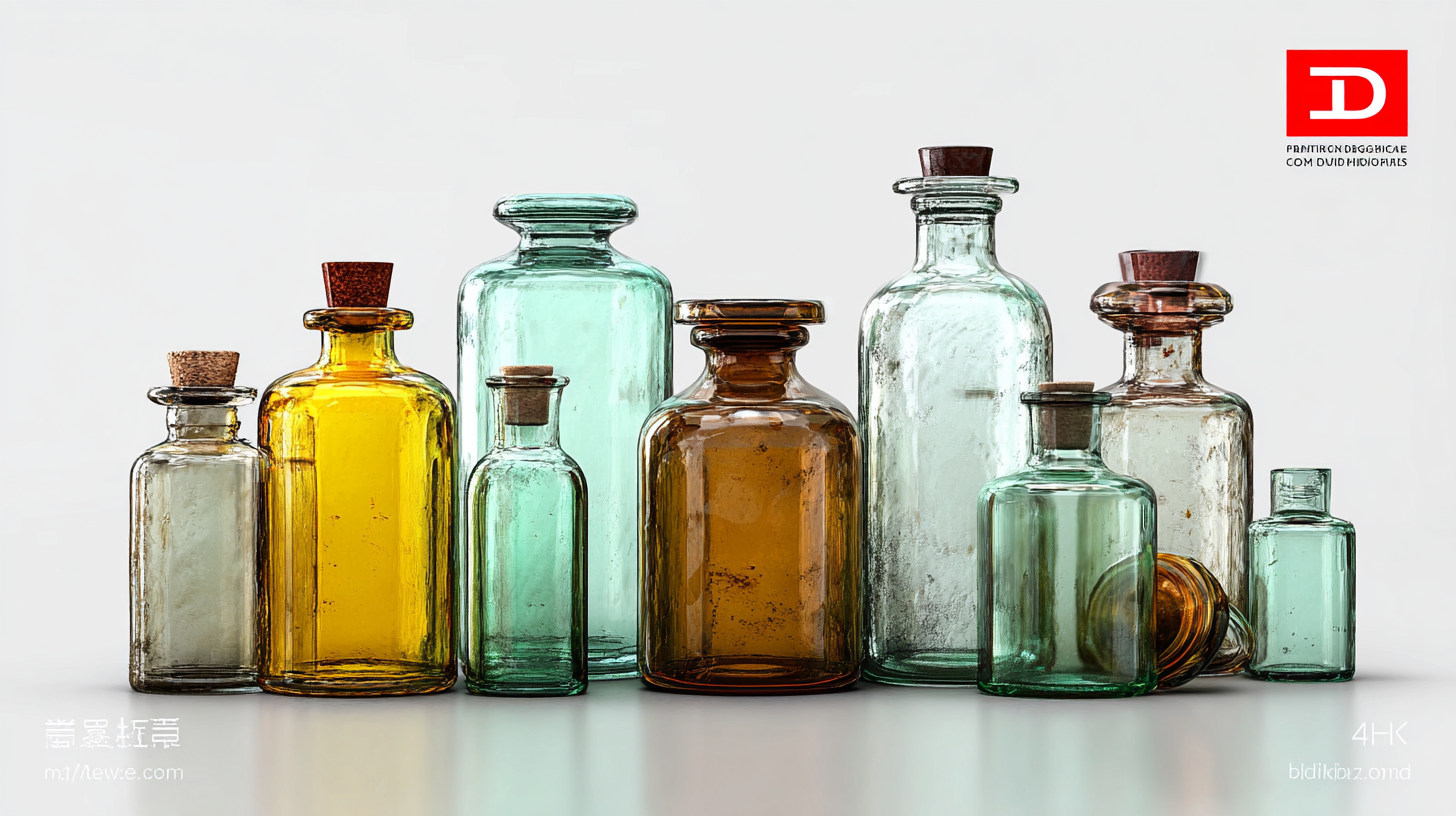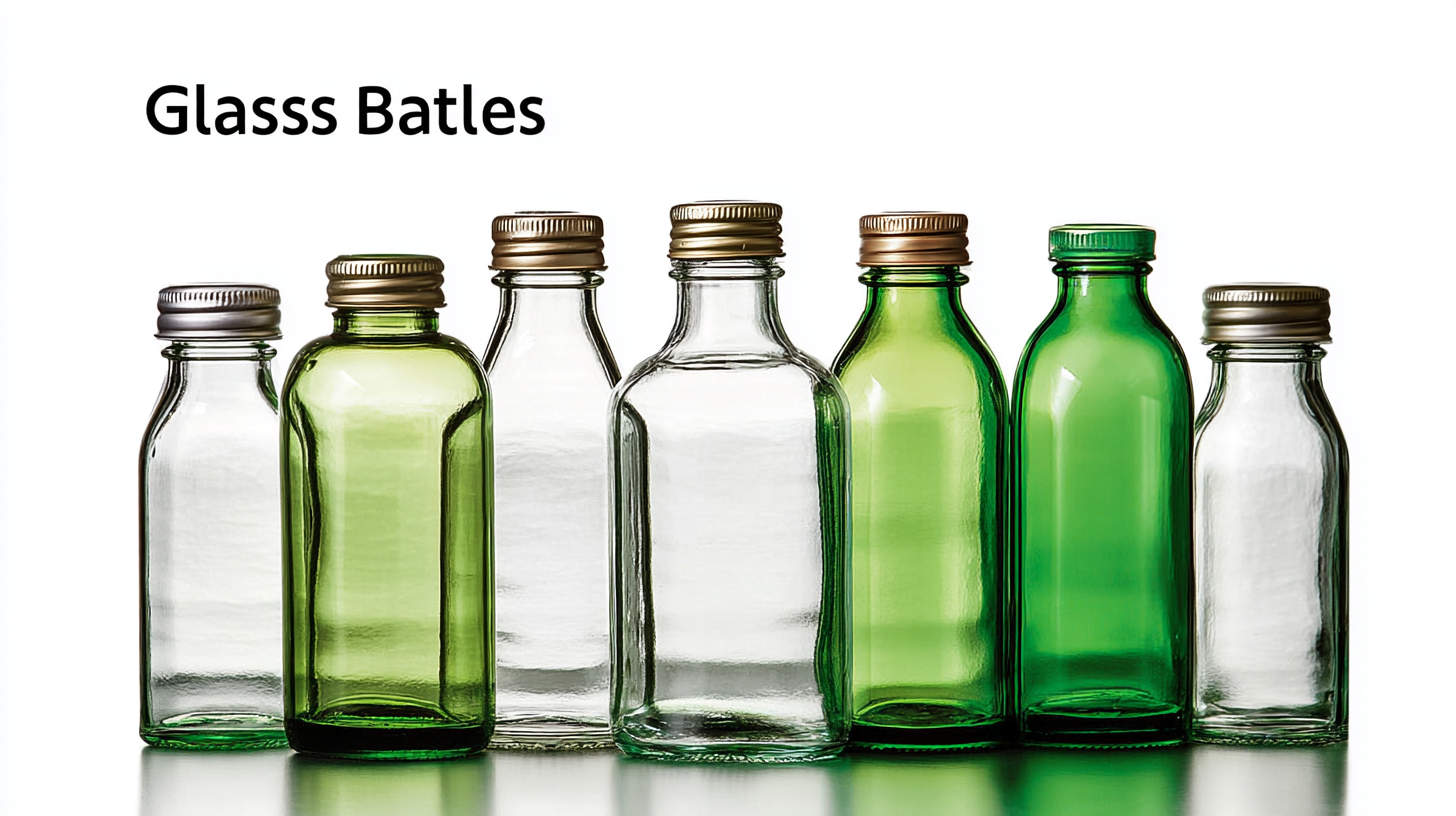Discover Premium Glass Bottles with Caps from China's Leading Manufacturers for Your Global Needs
In today’s global market, the demand for high-quality packaging solutions is on the rise, and "Glass Bottles With Caps" have emerged as a preferred choice for various industries, from beverages to cosmetics. As consumers increasingly prioritize sustainable and stylish packaging, manufacturers in China are leading the charge by offering premium glass bottles that not only boast aesthetic appeal but also ensure durability and safety.

This blog aims to explore how these innovative glass bottle solutions meet international import and export certifications, providing valuable insights into the digital landscape and top types available. Discover how collaborating with China’s leading manufacturers can elevate your brand's packaging strategy while catering to global needs, ensuring that your products stand out in a competitive marketplace.
Discover the Key Features of Premium Glass Bottles with Caps for Diverse Applications
The premium glass bottles market is witnessing a significant upsurge, driven by the increasing demand for high-quality packaging across various sectors, particularly in the beverage industry. According to a recent report by Custom Market Insights, the U.S. cap and closure market is predicted to exceed USD 220 billion, illustrating the robust growth potential within this niche. The shift towards sustainable packaging solutions has further enhanced the appeal of glass bottles with caps, which not only ensure product integrity but also offer an eco-friendly alternative to plastic.
As we look ahead to the years between 2025 and 2035, the glass bottle market is expected to thrive, propelled by the rising popularity of premium beverages. The Paragon Glass Jar Market, in particular, is projected to experience a compound annual growth rate (CAGR) of approximately 4.7% during its forecast period. This trend highlights the burgeoning consumer preference for products packaged in glass, which is associated with quality and sustainability. The adoption of innovative cap designs and features will play a crucial role in meeting the diverse application needs of manufacturers globally.
Discover Premium Glass Bottles with Caps from China's Leading Manufacturers for Your Global Needs
| Bottle Type | Capacity (ml) | Cap Type | Application | Features |
|---|---|---|---|---|
| Round Glass Bottle | 250 | Screw Cap | Cosmetics | BPA-free, Reusable |
| Square Glass Bottle | 500 | Dropper Cap | Essential Oils | Leak-proof, UV Protection |
| Amber Glass Bottle | 100 | Child-resistant Cap | Pharmaceuticals | Protects Contents, Durable |
| Frosted Glass Bottle | 750 | Pump Cap | Food and Beverage | Elegant Design, Easy Dispensing |
| Clear Glass Bottle | 1,000 | Tapered Cap | Beverages | Lightweight, Recyclable |
Understanding Material Specifications: Glass Types, Durability, and Safety Standards
When it comes to selecting premium glass bottles for various applications, understanding material specifications is vital. One of the most commonly used types of glass for manufacturing bottles is soda-lime glass, which offers excellent durability and is widely recognized for its recyclability. According to a recent report from the Glass Packaging Institute, about 50% of glass bottles are made from recycled materials, highlighting the sustainability aspect of this material. This can also significantly lower the carbon footprint in production.

In terms of safety standards, it is crucial to consider bottles that comply with regulations such as FDA and EU directives. These standards ensure that the materials used are safe for food and beverage contact, preventing any harmful leaching into products. A study published by the International Journal of Food Science noted that glass bottles exhibit lower migration rates of chemicals compared to plastics, making them a safer choice for consumers. With an increasing preference for health-conscious options, the demand for glass bottles that meet these stringent safety standards continues to rise globally.
Exploring Cap Technologies: Types, Benefits, and Compatibility with Glass Bottles
When it comes to glass bottle packaging, the choice of cap can significantly influence the overall user experience and product preservation. Various cap technologies have emerged, each designed to meet specific needs while ensuring compatibility with glass bottles. From traditional screw caps to innovative snap-on designs, understanding these options is key to optimizing your packaging solutions.
Screw caps are widely known for their ease of use and secure sealing capabilities, making them a popular choice for beverages and food products. On the other hand, corks offer a classic aesthetic often associated with fine wines and spirits. Additionally, specialized caps like child-resistant lids or tamper-evident seals provide extra layers of safety and security. As manufacturers continually improve these technologies, the benefits include enhanced freshness, extended shelf life, and reduced leakage risks, ensuring that your products reach consumers in perfect condition.
Choosing the right cap not only bolsters product integrity but also enhances consumer convenience. Compatibility with various glass bottles is crucial for achieving an effective seal, which helps prevent contamination and spoilage. By exploring these cap options and their respective advantages, businesses can make informed decisions that align with their brand's needs while also satisfying global consumers' expectations for quality and reliability.
Step-by-Step Guide to Selecting the Right Glass Bottle for Your Product Needs
When selecting the right glass bottle for your product needs, it’s essential to consider several key factors that can greatly impact both functionality and consumer appeal. First, evaluate the type of product you will be packaging. Different products, from beverages to cosmetics, require unique bottle shapes and sizes. A sturdy, tightly sealed bottle is critical for liquids, while lightweight bottles may be preferable for dry goods.
**Tip:** Always consider the compatibility of your product with glass materials. Certain chemicals may react negatively with specific types of glass, affecting the product's integrity and shelf life. Conducting proper tests can save you from potential losses in quality.
Next, think about design and branding. A visually appealing bottle can significantly enhance your product's marketability. Collaborating with manufacturers that offer customizable options will allow you to create a distinctive look that aligns with your brand identity.
**Tip:** Pay attention to color and finish, as these attributes can influence the perception of quality. Frosted finishes may imply elegance, while clear glass can showcase your product and attract consumer interest.
Glass Bottle Production and Export Data 2022
Industry Trends: Global Market Insights on Glass Bottle Innovations and Sustainable Practices
In recent years, the glass bottle industry has experienced significant transformations driven by innovation and sustainability. According to a report by GlobalData, the global glass bottle market is projected to grow at a compound annual growth rate (CAGR) of 4.5% from 2023 to 2028, reaching approximately $70 billion by the end of the forecast period. This growth is fueled by increasing consumer demand for eco-friendly packaging solutions as businesses and consumers alike become more environmentally conscious. Notably, brands are leveraging glass as a sustainable alternative to plastic, with its recyclability and reduced carbon footprint making it a preferred choice in the beverage and food sectors.

Moreover, innovative design features are emerging within the industry. Customization and the integration of advanced closing mechanisms, such as screw caps and swing-top closures, improve user convenience and product preservation. The International Glass Lightweighting Study highlights that lighter glass bottles not only reduce shipping costs but also lower logistics emissions, addressing both economic and environmental goals.
Tips for Brands: When selecting glass bottles, consider sourcing from manufacturers who prioritize sustainable materials and practices. Collaborating with suppliers that offer recycled glass options can further enhance your brand's sustainability credentials. Additionally, keep an eye on emerging trends in closures and designs to ensure your products stand out in a competitive marketplace.
